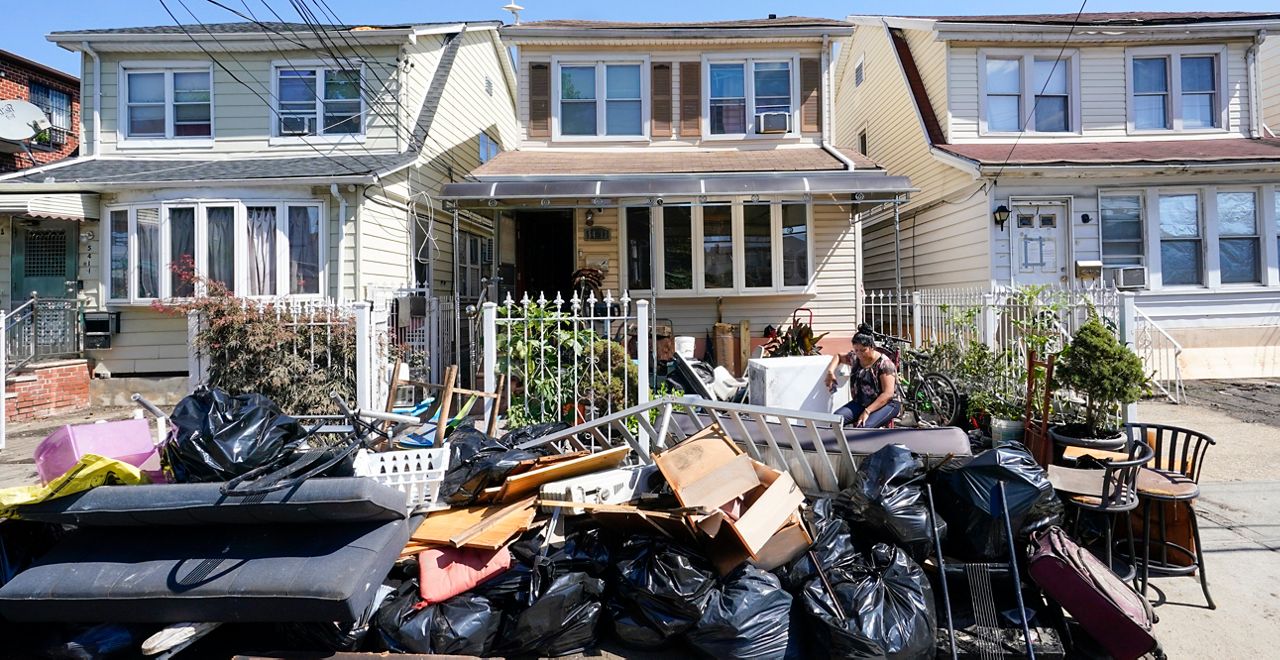Damage from flash floods in New York City and the Hudson Valley region this week is likely to exceed federal disaster thresholds and qualify the state for more aid from Washington, Gov. Kathy Hochul on Friday said.
Hochul, speaking in Yonkers on Friday morning, said the cleanup and damage costs from the flooding will almost certainly surpass $30 million, though a final figure is not yet available. She urged property owners to document damage and officials from the state Department of Financial Services are available to aid with filing claims.
Meanwhile, officials are also turning their attention to upgrading infrastructure in New York to handle flash flood events that may become more commonplace due to the changing climate.
"Climate change is not a hypothetical," Hochul said. "We've talked about this happening in the future. My friends, the future is now. We're not as prepared as we should be."
The surging waters did not come from coastal areas, but from tributaries, streams and overflowing sewers that were not built to withstand the deluge of rain that fell on the area Wednesday and Thursday from the remnants of Hurricane Ida.
"I want to ever again see Niagara Falls rushing down the stairs of a New York City subway," Hochul said.
Senate Majority Leader Andrea Stewart-Cousins drove herself home to Yonkers Wednesday amid the storm following the extraordinary session in Albany to extend the state's eviction moratorium.
She pointed to the pending $3 billion environmental infrastructure bond act, which is set to be put to voters in November 2022, that would commit funding to spend at least $1 billion to improve flood management and tackle municipal sewer and wastewater systems for improvements.
More immediately, questions are being raised over local and state government preparation for the storm as well as regulations for basement apartments, where multiple died amid flooding in Queens.
Hochul called for a better system of evacuating people, including deploying emergency teams on the ground to issue warnings in advance, especially for people who do not have cellphones or speak a language other than English.
